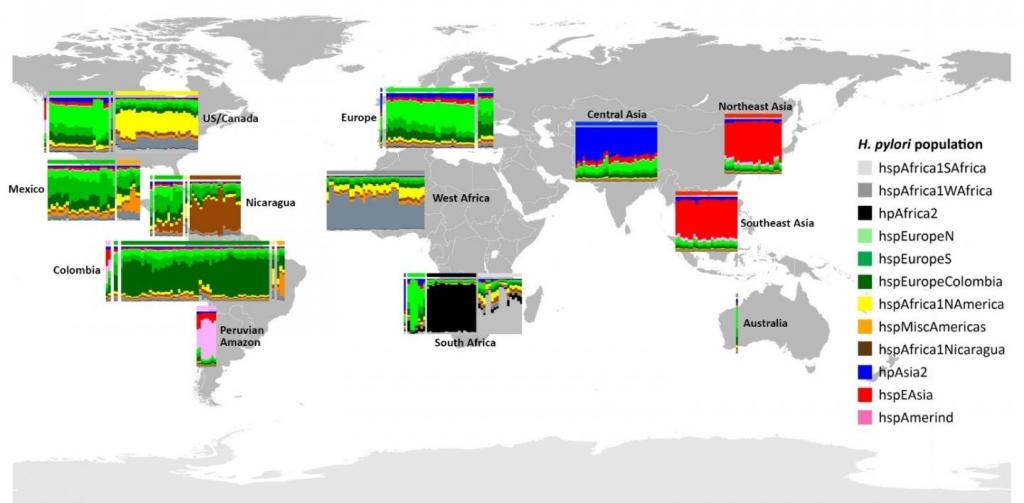
Distinct new sub-populations of Helicobacter pylori have evolved in North, Central and South America. (Image by Kaisa Thorell, Koji Yahara & colleagues)
Bacterium Helicobacter pylori is a major health issue in Latin America, where it contributes to ulcers and stomach cancer. Previous studies have linked an increased risk of cancer and a mismatch between the ethnicity of the patient and the origin of the bacterial strain. In the present study, researchers analyzed 401 H. pylori genome sequences from strains collected in North, Central and South America. They found that European and African strains mixed together across the Americas with little input from local strains, suggesting that the bacterial populations evolved quickly and spread rapidly to people of different ethnicities.
Authors:
Kaisa Thorell, Koji Yahara, Elvire Berthenet, Daniel J. Lawson, Jane Mikhail, Ikuko Kato, Alfonso Mendez, Cosmeri Rizzato, María Mercedes Bravo, Rumiko Suzuki, Yoshio Yamaoka, Javier Torres, Samuel K. Sheppard, Daniel Falush
Corresponding author:
Daniel Falush, Milner Center for Evolution, Department of Biology and Biochemistry, University of Bath, UK, Email: danielfalush@googlemail.com ; d.p.falush@bath.ac.uk
Original paper published in PLOS Genetics on February 23, 2017.


